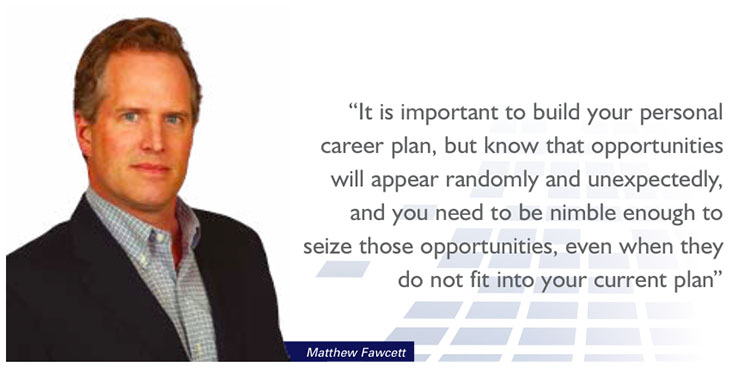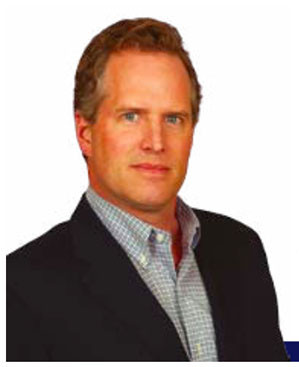
Global General Counsel of NetApp Matthew Fawcett shares his views on overseeing a worldwide legal team, advises the In-House Community on what they have stated are their most prevailant challenges and tells them what to do when “sitting in the worry seat”. |
| Asian-mena Counsel: Having worked in private practice before moving in-house, what have you learned that you wish you knew whilst working at a law firm? Matthew Fawcett: Three things come to mind. First, in all cases, understanding your client’s business strategy is important, though it rarely gets discussed in the context of a specific engagement. Second, when the client is a publicly traded company, spending a moment looking at its latest set of financials is a good idea because it helps contextualise the specific engagement. Finally, when the outside counsel’s main client contact is a GC or in-house lawyer, versus a business person, I think it is extremely valuable to understand the demands and constraints on her or him, because it is so different than private practice. Assuming my job is fundamentally the same as that of a law firm partner would lead you down a wrong path. When I speak about the differences of working in-house versus in private practice, I usually highlight the items in the table below. AMC: According to our statistics, in-house counsel in Hong Kong see “Changing non-lawyer colleagues’ perception of the legal function from being a barrier to being a business partner” as the biggest challenge they have to face. Have you come across this challenge and how would you suggest approaching this drawback? AMC: Our community stated that certainty of cost, responsiveness and industry knowledge are the three biggest concerns when dealing with external counsel, though some noted extra capacity e.g. secondments and making them look good as being important too. Is this the case in your experience and why do you think this is? AMC: What are some of the main challenges that you have to overcome as a global general counsel as opposed to a regional one and how do you do so? On the flip side, it is terrific to see different regions of our global team collaborate and work together, which happens all the time, whether it is serving one of our global customers, developing and rolling-out policy, training employees and partners or just sharing best practices. We call it “passing the ball in the dark”. For example Valerie Velasco’s APAC team working deeply with Dierk Schindler’s EMEA team and Elizabeth Ward’s North America team. I would characterise that as a challenge because it is not easy to do at a world class level, and we put a lot of time and attention into passing the ball in the dark well. It yields great benefits for our internal clients when we are truly collaborative on a global basis. AMC: Please describe how the in-house role has changed as the market has developed 1. More ‘specialist’ lawyers are finding in-house roles. No longer is the department just for corporate generalists. Today, many companies staff litigators, real estate counsel, labour lawyers and so forth. 2. Some companies have started recruiting junior lawyers, even first year associates in the case of a few companies, deciding that their training and development programmes will develop and accelerate a young lawyer faster than a law firm’s. By contrast, not that long ago, in-house jobs were only available to lawyers with 10 years or more of experience. 3. Non-lawyers make up a bigger part of many departments than ever before and are performing legal and quasi-legal work. This wave started with contract negotiators joining the team, but has evolved to include a variety of roles, including operations personnel, IT/technical talent, IP specialists etc. As law departments have grown, they have also diversified in interesting ways. |
 |
| AMC: Obviously working for NetApp, you need to remain updated with technology anyway, but how up-to-date do you feel in-house lawyers in general should be with technology and do you feel that this level of required knowledge will increase over the coming 10 years? Is there any technology you use at this point in time that you find particularly useful? MF: When I started at NetApp five years ago, the legal department used three specific technologies. Today we use more than three dozen different technologies, many of which I consider business critical. One of the first things I did when coming on board was create an operations department, hiring Connie Brenton, with a mission to expand our use of technology, even being beta testers of new and interesting legal-related technologies. While still relatively new, I expect that technologies like e-signatures, automated contracts and analytics tools will be pervasive in all large law departments in the coming years. AMC: Some things in life are left to chance, but what would you suggest to a young lawyer trying to positively control their career trajectory? 1. Be prepared. I am astounded by how many young lawyers and law students come to interviews without researching the prospective employer and interviewer. It only takes 15 minutes and a smartphone. 2. Work hard. You are competing on a global scale today. The world is filled with smart people willing to work hard to achieve. If you want to be successful at the highest level of your profession, you will have to earn it. 3. “Plans are worthless, but planning is everything” — Dwight D. Eisenhower. It is important to build your personal career plan, but know that opportunities will appear randomly and unexpectedly, and you need to be nimble enough to seize those opportunities, even when they do not fit into your current plan. For example, I did not expect to spend time as a Deputy District Attorney doing criminal trials, but in 1994 when my law firm’s San Francisco office imploded (and I was out of a job as a second year associate), I found an opportunity to do what all young litigators desire but do not get in big firms: doing trials. AMC: What’s the best advice you’ve ever received and what’s the best advice you could give? 1. “Failure is not fatal, but failure to change might be” — John Wooden (legendary UCLA basketball coach). 2. “Nobody cares how much you know until they know how much you care” — Theodore Roosevelt (26th U.S. President). 3. “Omne trium perfectum” (Everything perfect comes in threes) — Hopefully this interview helped make that point! Endnote: |


